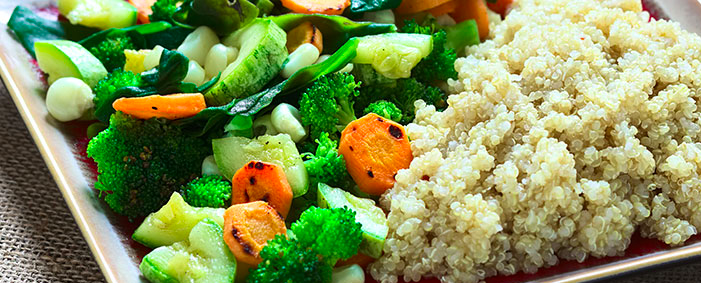
The craze for vegetable steaks reflects a desire to eat healthier while preserving the planet and animal welfare. With soy, peas or cereals, many processors and distributors now offer these products that are now in different forms: patties, steaks, sliced … Is it the end of meat consumption?
Advanced research for these new products
Like Téréos, processors and distributors have embarked on the development and marketing of plant products. Because the market explodes: + 42% in 5 years!
This cooperative was the initiative of a research center dedicated to the valorization of vegetable proteins and especially those of wheat. A first patented product, composed solely of wheat and chickpea, has been marketed for a few months in France and Germany under the name “saute végétale”.
It is part of a larger project ( GenVie for “Taste and Nutritional Balance for New Vegetable Meat”) that aims to develop foods that are closer to meat in terms of color, taste, texture and nutritional quality. . According to Téréos, it is possible to incorporate up to 40% of ingredients such as beans, chickpeas, vegetables or even fruits to obtain a vegetable steak.
We are moving away from products that are “good for you” to “pleasure” products that are as enviable by the eyes as by the mouth. Which can lead to extreme sophistication …
A steak that looks more and more like meat
” Impossible Foods ” is an American company that has been developing meat and cheese substitutes made entirely from plants since 2011 and has been marketing them in a few restaurants since 2016. Its researchers analyzed animal products at the molecular level and then selected of protein and nutrients from vegetables , seeds and grains to recreate the taste of meat and dairy products. “The Impossible Burger”, the first product, is made from wheat, coconut oil and potatoes and a special ingredient, heme.
The heme makes it possible to obtain the color and the taste of the meat and catalyzes with other flavors when cooking. It is very abundant in animal muscles, but it is a molecule found in all kingdoms, including the plant world. The company has used genetically engineered yeasts to produce heme from soybeans (a fermentation similar to the one used to make beer) and to give both color, texture and meat taste to these products. This steak, for regulatory reasons, will probably never be marketed in Europe …
A positive impact for the planet
Consuming meat today raises environmental issues for many consumers. Livestock occupy one third of the agricultural area, and the growing demand for meat products raises fears of increased pressure on biodiversity and natural areas. The plants needed for their food use a quarter of the available water, and livestock alone accounts for 15% of greenhouse gases. “Impossible foods” claims a significantly reduced environmental record: a quarter less water, 1 / 20th of arable land and 1 / 8th of greenhouse gas emissions and less to produce these steaks plants.
But bartering meat for a vegetable steak, is it really good for your health?
In view of the many articles and commercials touting the vegetable steaks, one might think that the answer is yes. Yet the 60 million consumer magazine of January 2017 was less enthusiastic and for several reasons.
First of all, many products do not contain enough protein , whereas it would take 15% minimum per serving. And especially no vegetable protein alone brings the nine amino acids essential to the body. Ideally, protein sources should be mixed with cereals and legumes, but this is not always the case. Vegetable products also contain very little iron or zinc, whereas meat contains a lot of iron.
In short, completely replacing meat with plant products can be a nutritional mistake for growth and metabolism in general.
Finally, plant products are processed foods: they contain different ingredients but also flours, additives, gelling agents and dyes. And this is all the more true as the final product is more like an animal steak, like “Impossible burger” which contains an ingredient produced from a GMO ! They are sometimes even more caloric because they are high in carbohydrates and fat.
To their advantage, they contain more fiber, no hormones or antibiotics.
If vegetable steak is clearly good for the planet, it must be eaten as part of a balanced and varied diet, and perhaps give it a less connoted name. Because meat consumption is falling, but it remains a quality food for the omnivores that we are!